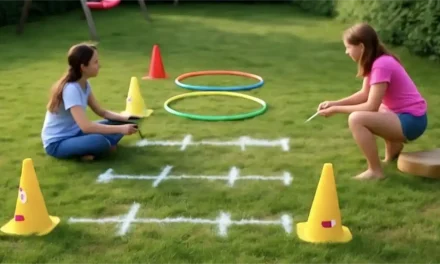
Social and Emotional Insight: Uncover Hidden Motives Thoughtfully
C
hildren often assume the surface of events tells the whole story, missing the deeper reasons behind others’ actions. Teaching them to ask, “Why might they really do that?” fosters investigative thinking, sharpening their ability to interpret actions with nuance and wisdom — a crucial skill for leadership, negotiation, and critical judgment.
One morning, my daughter was upset that a friend suddenly offered a gift after an earlier argument. She quickly labeled it as suspicious but couldn’t explain why. I challenged her to list three possible motives — reconciliation, guilt, or manipulation — and think through which seemed most likely based on the friend’s behavior. Her conclusion, grounded in facts rather than feelings, helped her approach the situation wisely rather than impulsively.
To build this capacity, create a “Motive Detective” exercise weekly. Choose a real event — from playground dramas to historical cases — and ask your child to list three possible motives for someone’s action. Guide them to support each with evidence, then discuss which motive seems most plausible. Keep a “Motive Journal” to track their evolving skill. Over time, they will develop the rare ability to look beyond appearances and uncover the real engines of human behavior.
Social and Emotional Insight

Social and Emotional Insight: Notice Crucial Details Others Miss
Teach children to observe carefully. Attention to detail strengthens problem-solving, creativity, and awareness.

Social and Emotional Insight: Understand Different Perspectives
Seeing through another’s eyes builds empathy and wisdom. Guide children to consider how others think and feel.
Table of contents

Primordial Soup for the Mind: Navigation
Navigate the book Primordial Soup for the Mind.
TIPS
- Ask “Why might they do that?” to deepen empathy
- Praise thoughtful guesses with evidence
- Use real or fictional examples
- Explore motives in books or daily life
- Discuss your own actions to model openness
ACTIVITIES
- Motive Hunt: Pick a person’s action, name 3 motives, support one — 10 min
- Scene Sleuth: Observe a behavior (e.g. TV character), guess a motive — 10 min
- Motive Log: Reflect on a friend’s surprising act, write likely reason — 10 min
TOOLS
Storybooks, Motive Journal, Motive Map cards

Download “Primordial Soup for the Mind: A Parent’s Guide to Nurturing Intellectual Growth”
Enter your information to get this article and hundreds more as part of the FREE book Primordial Soup for the Mind.
Share your thoughts with the Thought Academy community in the Comments section below.

Sharpen those skills!
Enter your information to get our FREE practice exercises so you can hone your critical thinking and reasoning skills!







0 Comments